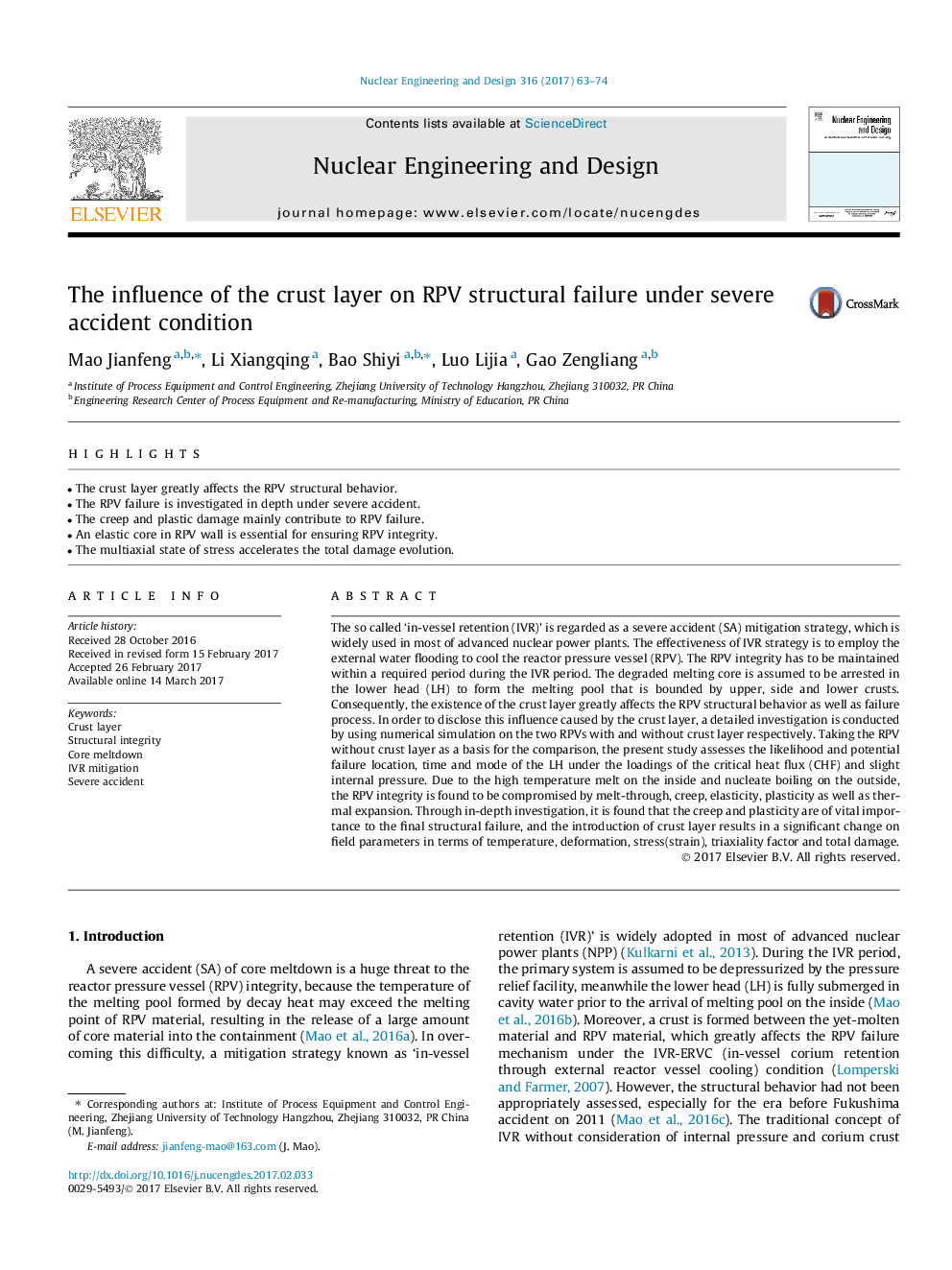| Article ID | Journal | Published Year | Pages | File Type |
|---|---|---|---|---|
| 4925671 | Nuclear Engineering and Design | 2017 | 12 Pages |
â¢The crust layer greatly affects the RPV structural behavior.â¢The RPV failure is investigated in depth under severe accident.â¢The creep and plastic damage mainly contribute to RPV failure.â¢An elastic core in RPV wall is essential for ensuring RPV integrity.â¢The multiaxial state of stress accelerates the total damage evolution.
The so called 'in-vessel retention (IVR)' is regarded as a severe accident (SA) mitigation strategy, which is widely used in most of advanced nuclear power plants. The effectiveness of IVR strategy is to employ the external water flooding to cool the reactor pressure vessel (RPV). The RPV integrity has to be maintained within a required period during the IVR period. The degraded melting core is assumed to be arrested in the lower head (LH) to form the melting pool that is bounded by upper, side and lower crusts. Consequently, the existence of the crust layer greatly affects the RPV structural behavior as well as failure process. In order to disclose this influence caused by the crust layer, a detailed investigation is conducted by using numerical simulation on the two RPVs with and without crust layer respectively. Taking the RPV without crust layer as a basis for the comparison, the present study assesses the likelihood and potential failure location, time and mode of the LH under the loadings of the critical heat flux (CHF) and slight internal pressure. Due to the high temperature melt on the inside and nucleate boiling on the outside, the RPV integrity is found to be compromised by melt-through, creep, elasticity, plasticity as well as thermal expansion. Through in-depth investigation, it is found that the creep and plasticity are of vital importance to the final structural failure, and the introduction of crust layer results in a significant change on field parameters in terms of temperature, deformation, stress(strain), triaxiality factor and total damage.
